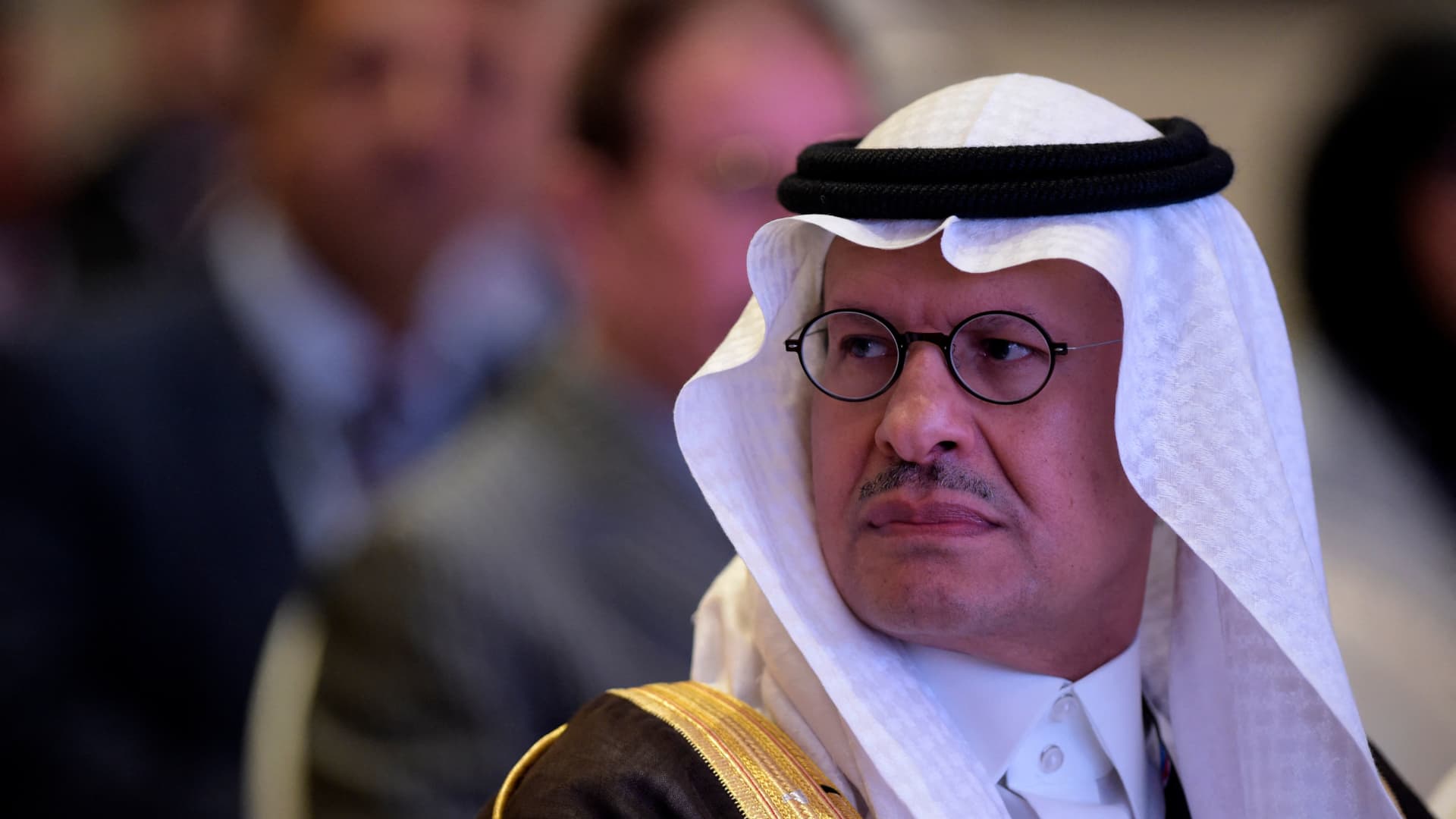OPEC+ Decision Looms As Big Oil Resists Production Increase

Table of Contents
Current Global Oil Market Dynamics
High Demand and Tight Supply
Global oil demand is currently robust, fueled by the post-pandemic economic recovery. This surge in demand is placing immense pressure on existing oil production capacity.
- Increased travel: Air travel and road transportation have rebounded strongly, significantly increasing fuel consumption.
- Industrial activity: Manufacturing and industrial sectors are operating at higher levels, boosting energy demand.
- Increased energy consumption: As economies recover, overall energy consumption, including oil, continues to rise.
- Low inventory levels: Global oil inventories remain relatively low, leaving little room to absorb unexpected supply disruptions. This tight supply situation contributes to higher prices.
This combination of high demand and constrained supply is a key driver behind the current high oil prices and the pressure on OPEC+ to increase production. The market is acutely sensitive to any perceived shortfall in supply.
Geopolitical Instability and its Influence
Geopolitical instability significantly impacts oil supply and prices. The ongoing war in Ukraine has profoundly disrupted the global energy landscape.
- Sanctions on Russian oil: Sanctions imposed on Russia, a major oil producer, have reduced its oil exports, creating a supply gap in the global market.
- Political instability in other oil-producing regions: Political unrest and conflicts in other oil-producing nations introduce further uncertainty and potential supply disruptions.
- Supply chain disruptions: The war in Ukraine and other geopolitical factors have contributed to broader supply chain disruptions, affecting the transportation and delivery of oil.
These geopolitical factors exacerbate the existing tight supply situation, further justifying calls for increased OPEC+ production to stabilize the market. The uncertainty surrounding geopolitical events adds volatility to oil prices.
OPEC+'s Internal Divisions and Challenges
Differing National Interests
OPEC+ members, including Saudi Arabia and Russia, have differing national interests that influence their approach to oil production.
- Saudi Arabia's production capacity: Saudi Arabia possesses significant spare production capacity and could potentially increase its output considerably.
- Russia's constrained capacity: Russia's oil production capacity is currently constrained due to sanctions and logistical challenges.
- Differing views on production increases: There are differing opinions within OPEC+ regarding the pace and extent of any production increase. Some members advocate for a more gradual approach, while others call for more significant action.
- Internal negotiations and power dynamics: The internal negotiations within OPEC+ are complex, reflecting the varied national interests and power dynamics within the cartel.
Pressure from Consumer Nations
OPEC+ faces considerable pressure from major oil-consuming nations, such as the US and EU, to increase oil production.
- Calls for increased supply: These nations are urging OPEC+ to significantly increase oil supply to curb inflation and alleviate the economic burden of high energy costs.
- Economic impact of high oil prices: High oil prices have a significant impact on consumer prices, impacting inflation and economic growth globally.
- Potential for international pressure: The international community may exert further pressure on OPEC+ to respond to the global energy crisis.
The pressure from consuming nations adds a significant layer of complexity to the OPEC+ decision-making process.
Big Oil's Resistance to Increased Production
Profit Maximization Strategies
Major oil companies may be reluctant to increase production due to their focus on profit maximization.
- High oil prices generate substantial profits: Current high oil prices are incredibly lucrative for oil producers.
- Reluctance to invest in new capacity: Uncertainty about future oil demand, particularly given the transition towards renewable energy, may deter investment in new production capacity.
- Focus on shareholder returns: Many oil companies prioritize maximizing shareholder returns, potentially leading them to prioritize profits over increased production.
Long-Term Investment Concerns
Oil companies face long-term strategic challenges influencing their production decisions.
- Transition to renewable energy: The global shift towards renewable energy sources poses a long-term threat to the demand for fossil fuels.
- Hesitation to invest in new fossil fuel infrastructure: Investing in new fossil fuel infrastructure carries significant risks, given the uncertainty about future demand and the potential for stranded assets.
- Balancing short-term profits with long-term sustainability: Oil companies must balance the pursuit of short-term profits with the need to adapt to a changing energy landscape.
Conclusion
The upcoming OPEC+ decision on oil production is a pivotal moment for the global energy market. The interplay between high demand, geopolitical instability, internal divisions within the cartel, and resistance from big oil companies will determine whether oil prices rise or stabilize. Understanding these multifaceted factors is essential for anticipating future energy market trends.
Call to Action: Stay informed about the latest developments regarding the OPEC+ production increase and its impact on global energy prices by following our blog for regular updates and analysis. Subscribe to receive notifications when we publish new articles on crude oil production, OPEC+ decisions, and energy market forecasts.

Featured Posts
-
 Lizzos Post Weight Loss Transformation Stuns At The Oscars
May 04, 2025
Lizzos Post Weight Loss Transformation Stuns At The Oscars
May 04, 2025 -
 Christen Conquista La Vuelta Ciclista A La Region De Murcia
May 04, 2025
Christen Conquista La Vuelta Ciclista A La Region De Murcia
May 04, 2025 -
 Murder And Torture Indictment Against Stepfather In Teens Case
May 04, 2025
Murder And Torture Indictment Against Stepfather In Teens Case
May 04, 2025 -
 Injury Blow For Nuggets Star Player Out Against Okc
May 04, 2025
Injury Blow For Nuggets Star Player Out Against Okc
May 04, 2025 -
 Jogo Do Corinthians Transmissao Horario E Local Sao Bernardo
May 04, 2025
Jogo Do Corinthians Transmissao Horario E Local Sao Bernardo
May 04, 2025
